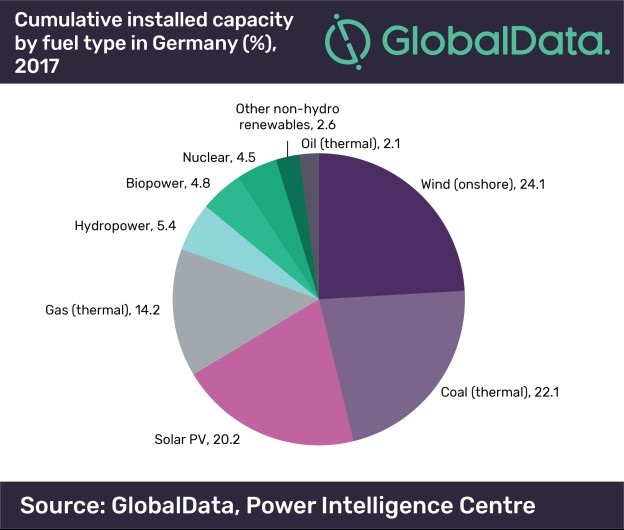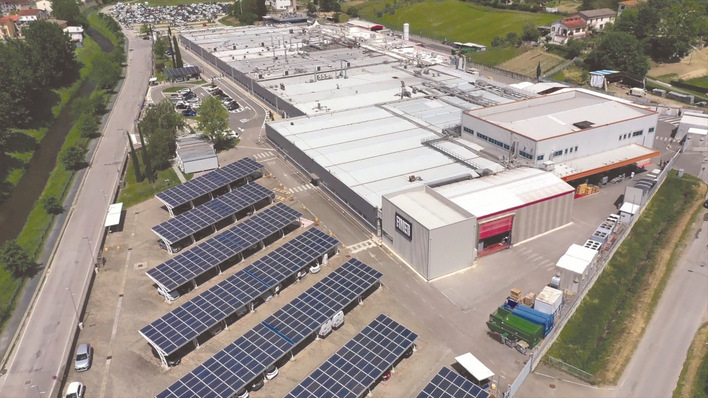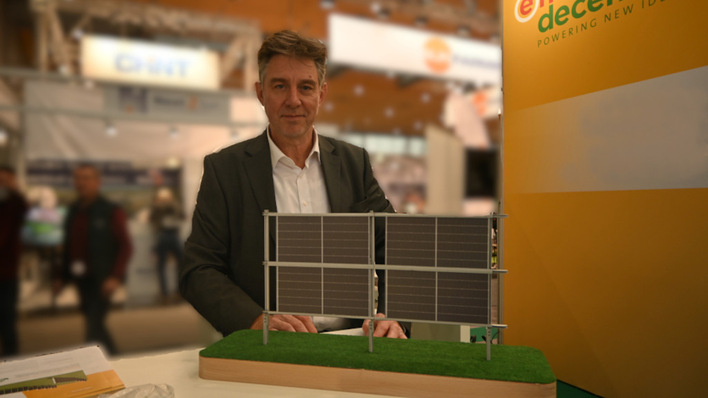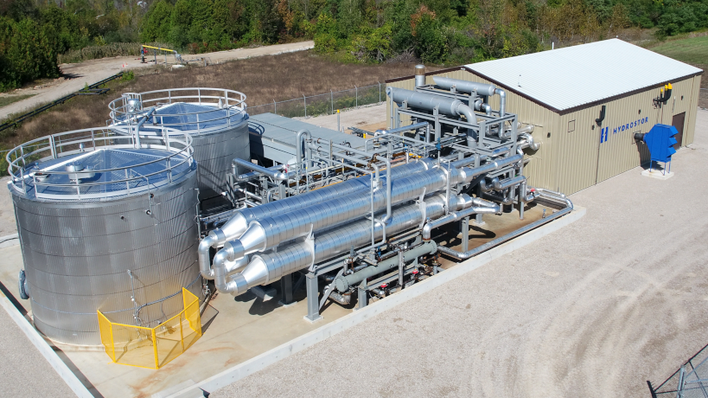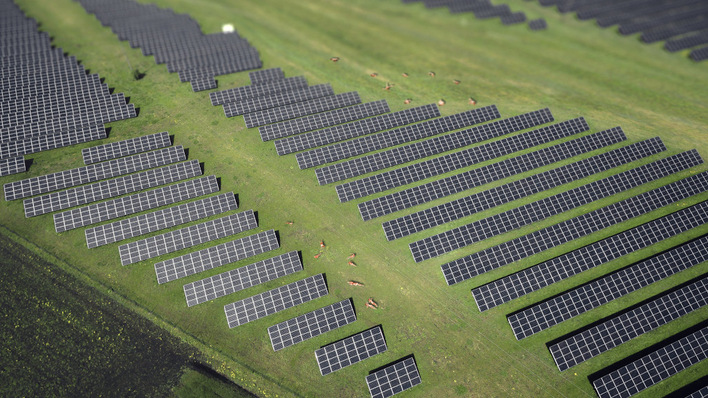The company’s latest report, ‘Germany Power Market Outlook to 2030, Update 2018 – Market Trends, Regulations, and Competitive Landscape’ reveals that the phasing out of the nuclear fleet is expected to be filled out almost exclusively by using non-hydro renewable technologies, which will contribute to more than 70% in the capacity mix in 2030.
51,6% power share of non-hydro renewables in 2017
In 2017, onshore wind power capacity accounted for the largest share of installed capacity, with 24.1%, closely followed by coal-based capacity and solar photovoltaic (PV) power, which accounted for 22.1% and 20.2%, respectively. Altogether, non-hydro renewables contributed to 51.6% of the country’s total installed capacity in 2017.
Chiradeep Chatterjee, Power Analyst at GlobalData, comments: “Non-hydro renewable power capacity is expected to continue growing to establish itself as the dominant source of energy by 2030, when it is expected to account for 71.9% of total installed capacity. On the other hand, it is expected that Germany will have phased out nuclear energy by 2022.”
Germany has witnessed drastic expansion in solar photovoltaic (PV) and onshore wind capacities in the historic period (2000–2017). In the forecast period (2018-2030), the government is focusing on expanding offshore wind and geothermal power, which are expected to increase at a Compund Annual Growth Rate (CAGR) of 8.7% and 9.9% respectively.
Reduction in coal based capacity
The contribution of thermal capacity is expected to decline from 38.4% in 2017 to 23.2% in 2030, mainly due to a reduction in coal based capacity.
Chatterjee adds: “The share of coal power, which was 22.1% in 2017 in the total capacity mix, is expected to decline to 9.3% in 2030. The gap is expected to be filled up only partially by gas-based capacity which explains the net decline in the share of thermal power.”
Generation from wind and solar power is intermittent. Germany plans to compensate for this through a mix of strategies that involve grid based electricity storage, import and export of electricity over a network of interconnectors that connect it to its neighbours, and importing gas from Russia. (HCN)
Stay informed, get our free newsletter twice a week. Register here
More useful information:
https://www.pveurope.eu/News/Markets-Money/Further-falling-inverter-prices-market-value-declining


